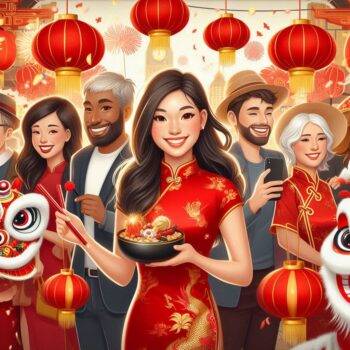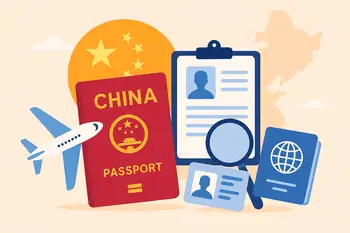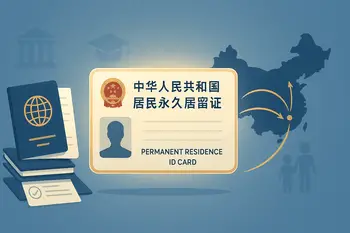
China is a land of rich cultural heritage and vibrant traditions, reflected in its numerous holidays and festivals.
For expatriates living in China, understanding these celebrations can enhance your cultural experience and help you integrate better into Chinese society.
This guide provides an in-depth overview of the most significant Chinese holidays and festivals, along with practical tips, cultural context, and resources to help you fully embrace these traditions.
Spring Festival (Chinese New Year) / 春节 (Chūn Jié)
Date: Varies (January or February)
Duration: 15 days
The Spring Festival, also known as Chinese New Year, is the most important holiday in China.
It marks the beginning of the Lunar New Year and is celebrated with family reunions, feasts, and traditions aimed at bringing good luck for the coming year.
Cultural Context
The origins of the Spring Festival are rooted in the legend of Nian, a mythical beast that terrorized villages.
To ward off Nian, people used loud noises, red decorations, and firecrackers—practices that continue today.
The holiday is also deeply tied to Confucian values of family unity and respect for elders.
Traditions
- Reunion Dinner: Families gather for a lavish meal on New Year’s Eve, often featuring dishes like dumplings (jiaozi) and fish, symbolizing prosperity.
- Red Envelopes: Elders give red envelopes (hongbao) containing money to children and unmarried adults as a gesture of good fortune.
- Fireworks and Lion Dances: These are performed to ward off evil spirits and bring in good luck.
- Decorations: Homes are adorned with red lanterns, couplets, and paper cuttings.
Tips for Expats
- Plan travel well in advance, as transportation becomes extremely crowded during this period.
- Be prepared for closures of businesses and government offices.
- Exchange New Year’s greetings like “新年快乐” (Xīnnián Kuàilè, Happy New Year) with friends and colleagues.
- Participate in local festivities, such as temple fairs or community lion dances.
Resources
Lantern Festival / 元宵节 (Yuán Xiāo Jié)
Date: 15th day of the first lunar month (February or March)
Duration: 1 day
The Lantern Festival marks the end of the Spring Festival celebrations.
It is characterized by vibrant displays of lanterns, traditional performances, and the eating of yuanxiao (sweet rice dumplings).
Cultural Context
The Lantern Festival has its roots in the Han Dynasty and is associated with worshiping the full moon and celebrating family unity.
Lantern riddles and dragon dances are symbolic of wisdom and strength.
Traditions
- Lantern Displays: Public spaces are adorned with beautifully crafted lanterns.
- Lion and Dragon Dances: Traditional dances are performed to entertain and bring good fortune.
- Riddle-Solving: Riddles are written on lanterns for people to solve.
Tips for Expats
- Visit local parks or cultural centers to enjoy the lantern displays.
- Try yuanxiao to experience traditional festival food.
- Engage with locals by attempting to solve lantern riddles.
Resources
Qingming Festival (Tomb Sweeping Day) / 清明节 (Qīng Míng Jié)
Date: April 4 or 5
Duration: 1 day
Qingming Festival is a time for Chinese families to honor their ancestors by visiting their graves, cleaning the tombstones, and making offerings.
Cultural Context
This holiday dates back over 2,500 years and reflects the Confucian value of filial piety.
It is also a time to welcome spring with outdoor activities.
Traditions
- Tomb Sweeping: Families clean and repair gravesites and make offerings of food and paper money.
- Spring Outings: People enjoy outdoor activities like kite flying and picnics.
Tips for Expats
- Be respectful of the solemn nature of this holiday.
- Participate in or observe the traditions if invited by local friends.
- Use the public holiday to explore parks and scenic areas.
Resources
Dragon Boat Festival / 端午节 (Duān Wǔ Jié)
Date: 5th day of the 5th lunar month (May or June)
Duration: 1 day
The Dragon Boat Festival commemorates the life and death of the ancient Chinese poet Qu Yuan.
It is known for its boat races and the eating of zongzi (sticky rice wrapped in bamboo leaves).
Cultural Context
Qu Yuan, a loyal minister, drowned himself in protest against corruption.
Locals raced boats to save him and threw rice into the river to distract fish from his body, giving rise to the festival’s traditions.
Traditions
- Dragon Boat Races: Teams race elaborately decorated dragon boats.
- Eating Zongzi: People eat zongzi to remember Qu Yuan.
- Hanging Mugwort and Calamus: These plants are hung on doors to ward off evil spirits.
Tips for Expats
- Attend a dragon boat race to experience the excitement and cultural significance.
- Try making or eating zongzi with friends or colleagues.
- Learn about Qu Yuan and the history behind the festival.
Resources
Mid-Autumn Festival / 中秋节 (Zhōng Qiū Jié)
Date: 15th day of the 8th lunar month (September or October)
Duration: 1 day
The Mid-Autumn Festival, also known as the Moon Festival, celebrates the harvest and the full moon.
It is a time for family reunions and the giving of mooncakes.
Cultural Context
The festival is tied to the legend of Chang’e, the moon goddess, and symbolizes family unity and gratitude for the harvest.
Traditions
- Mooncakes: Eating and sharing mooncakes is a central tradition.
- Moon Gazing: Families gather to appreciate the full moon.
- Lanterns: Lanterns are lit and displayed, especially by children.
Tips for Expats
- Participate in moon gazing with friends or neighbors.
- Sample different varieties of mooncakes, which are often exchanged as gifts.
- Join community events or lantern displays to celebrate with locals.
Resources
National Day / 国庆节 (Guó Qìng Jié)
Date: October 1
Duration: 7 days (Golden Week)
National Day marks the founding of the People’s Republic of China.
It is celebrated with grand parades, fireworks, and various festivities.
Tips for Expats
- Be prepared for crowded tourist attractions and transportation hubs.
- Enjoy the festive atmosphere and attend public celebrations if possible.
- Use the holiday period to explore less crowded destinations or relax at home.
Resources
Conclusion
Chinese holidays and festivals offer a rich tapestry of cultural experiences that expats should embrace.
By understanding the significance and traditions of these celebrations, you can deepen your connection with Chinese culture and create lasting memories.
Whether it’s participating in a dragon boat race, enjoying a mooncake, or simply appreciating the festive spirit, these holidays provide a unique opportunity to immerse yourself in the vibrant cultural life of China.


